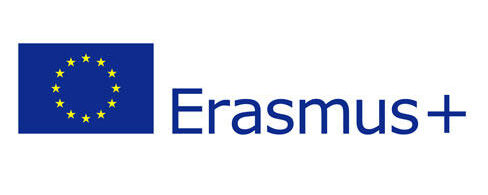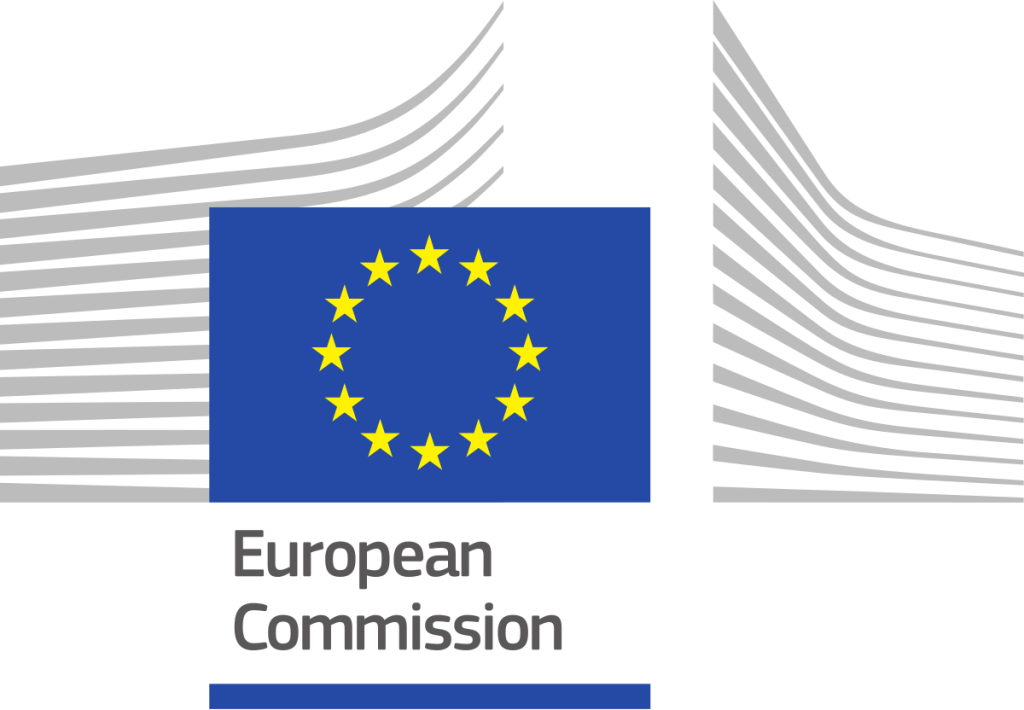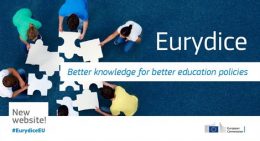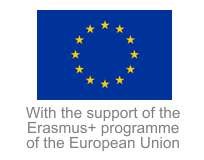National Erasmus + Office +382 20 223 087
Mobility project for higher education students and staff (Credit mobility)
Within the KA1 – International Credit Mobility, Erasmus+ programme provides scholarships for staying and studying at one of the higher education institutions established in the programme countries, within student exchange at all levels of study (Bachelor, Master`s, PhD level) or the stay of teaching or administrative staff employed at a higher education institution established in Montenegro. For students, that means a stay lasting one or two semesters, during which they attend lectures and take exams which will be recognized upon students` return to the home institution in Montenegro. When it comes to teaching and administrative staff, the mobility period is shorter (from five days to two months), and its purpose is participation in teaching, implementation of teaching activities or professional development.
From 2018, the European Commission provides traineeship programme in EU countries for students at all levels of study (Bachelor, Master`s, PhD level), from Erasmus + partner countries around the world. Traineeship programme should start in autumn 2018
What is the duration of the mobility period within Erasmus + credit mobility?
For students, this mobility involves staying and studying for the period of one or two semesters, during which they attend lectures and take exams which will be recognized upon their return to the home institution established in Montenegro.
When it comes to teaching and administrative staff, the mobility period is shorter (from five days to two months), and its purpose is participation in teaching, implementation of teaching activities or professional development.
These scholarships cover tuition fees, travel expenses, and often include covered health insurance. The scholarship also includes the amount intended to cover the cost of living.
Traineeship opportunities
Your traineeship abroad can last from a minimum of 2 months to a maximum of 12 months. Traineeship can be done at any public or private organization which is actively engaged in the labor market or in the field of education, training and youth, such as:
- public or private, small, medium or large enterprise (including social enterprises);
- public body at local, regional or national level
- social partner or other representative of the business sector, including the Chamber of Commerce, professional associations and trade unions
- Research Institute
- Foundations
- School / Institute / Education center (at any level, starting from pre-school to secondary and higher education, including vocational education and adult education)
- non-profit organization, association, NGO
- body providing professional guidance services, professional counseling or information services
- Higher education institution from the country participating in the programme and which is the holder of the Erasmus+ Charter in the field of higher education
To take part, the trainee must be registered at a participating higher education institution, either an Erasmus+ Charter holder in a Programme Country, or their partner institution in a Partner Country. During their placement, the trainee will receive an Erasmus+ grant to contribute to their travel costs and living allowance.
The trainee and participating organisations will sign a Learning Agreement detailing the traineeship programme and setting out the rights and responsibilities of all parties. Unlike the intra-European scheme, the programme is not open to recent graduates.
The scheme will also fund the mobility of staff from non-HEI organisations to teach at a HEI, and for HEI staff to train at a non-HEI organization.
Grant amount for learning/traineeship mobility of students
Students receive monthly scholarships for covering the cost of living, and the amounts depend on the country in which the mobility is realized and are given in the following table:
| The countries where mobility is carried out | Grant amount/per month |
| Denmark, Ireland, France, Italy, Austria, Finland, Sweden, United Kingdom, Liechtenstein, Norway | 900 € |
| Belgium, Czech Republic, Germany, Greece, Spain, Croatia, Cyprus, Luxembourg, Netherlands, Portugal, Slovenia, Iceland, Turkey | 850 € |
| Bulgaria, Estonia, Latvia, Lithuania, Hungary, Malta, Poland, Romania, Slovakia, Macedonia | 800 € |
Grant amount for teaching and administrative staff
When it comes to teaching and administrative staff, the grant amounts are given at the daily level and also vary depending on the country in which the mobility is carried out. The daily amounts given in the table below are generally paid for staying of up to 15 days, and if the stay lasts longer, from 15 to 60 days, that is the maximum duration of stay, the daily amount of 70% of the amount given in the table below is envisaged.
| Receiving country | Grant amount/per day |
| Norway, Denmark, Luxembourg, United Kingdom, Iceland, Sweden, Ireland, Finland, Liechtenstein | 180 € |
| Netherlands, Austria, Belgium, France, Germany, Italy, Spain, Cyprus, Greece, Malta, Portugal | 160 € |
| Slovenia, Estonia, Latvia, Croatia, Slovakia, Czech Republic, Lithuania, Turkey, Hungary, Poland, Romania, Bulgaria, the Former Yugoslav Republic of Macedonia | 140 € |
Travel costs support for participants
The amounts envisaged for covering travel expenses (for students and for teaching and administrative staff) are also predetermined and vary depending on the distance from the place of residence to the place where the mobility will be carried out. The distance is calculated exclusively by the distance calculator used by the European Commission, by observing the distance in one direction, and the appropriate amount given in the table below is envisaged to cover the costs of the return ticket:
| Travel distances | Amount (for the return ticket) |
| Between 10 and 99 KM: | 20 EUR per participant |
| Between 100 and 499 KM: | 180 EUR per participant |
| Between 500 and 1999 KM: | 275 EUR per participant |
| Between 2000 and 3999 KM: | 360 EUR per participant |
| Between 3000 and 499 KM: | 530 EUR per participant |
| Between 4000 and 4999 KM: | 820 EUR per participant |
| 8000 KM or more: | 1500 EUR per participant |
Requirements to be fulfilled
It is necessary for a candidate to be enrolled at a higher education institution that has signed an Agreement with the higher education institution from Erasmus + programme country where the mobility will be implemented. Besides, it is obligatory that the student has completed the first year of the Bachelor studies before applying. All other requirements are defined by the competition itself announced by higher education institutions, and through which students may apply for mobility.
Which higher education institutions are suitable for implementation of Erasmus+ mobility?
Mobility within the Erasmus + programme is carried out at those higher education institutions with which the home institution of higher education of the student in Montenegro has signed the Erasmus + Agreement. It is recommended to check the list of these institutions with a person in charge of international cooperation within the student’s home University or in the Office for International Cooperation of the home University.
How to apply
Applications for Erasmus + mobility are submitted through Public Calls that are announced by higher education institutions in Montenegro and should be available on the web sites of these institutions. The conditions for offered mobility are always defined by the Call. In the first place, it is always indicated to whom the Call is intended (students or staff or both) and for which level (year) of studies the exchanges are envisaged, and the duration of the mobility period is defined, then the required documentation, the submission deadline, the criteria for selection of candidates, etc. are listed.
Students who are interested in doing traineeship within the Erasmus + programme from 2018 can contact the Office for International Cooperation within the University or Faculty, and start looking for advertised positions: www.erasmusintern.org
Application deadlines
Each Erasmus + mobility Call also defines the deadline for submitting the required documentation. It is expected that the Call is announced one semester or one academic year before mobility is implemented, so it is recommended to make plans and look for information on the web sites of the higher education institutions in a timely manner.
Required documentation
The necessary documentation is always indicated in the very text of the Erasmus + Mobility Call . The most frequently requested documents are:
- CV,
- Motivation letter,
- Letters of recommendation (the exact number is indicated),
- Degree (certificate of graduation),
- Transcript of Records,
- Certificate of knowledge of the language of instruction (in most cases English, however, when it comes to the exchange at the level of Bachelor studies, lectures are often held in the language of the country in which the university is established, and a certificate of knowledge of that language is required),
- Learning Agreement – signed by a student and both higher education institutions, which defines the subjects that the student will attend and which will be recognized upon student`s return to the home institution established in Montenegro;
- Research plan – valid for PhD students, in case they do not attend lectures during the mobility period, but carry out research activity
Useful links
Erasmus+ Homepage: http://ec.europa.eu/programmes/erasmus-plus/index_en.htm
FAQs for Higher Education Institutions: http://ec.europa.eu/education/opportunities/international-cooperation/documents/mobility-faqs_en.pdf
FAQs for Students & Staff: http://ec.europa.eu/education/opportunities/higher-education/doc/students-questions-answers_en.pdf
FAQs on the Inter-institutional Agreement: http://ec.europa.eu/education/opportunities/higher-education/doc/iia-faq_en.pdf
Quality Framework: http://ec.europa.eu/education/opportunities/higher-education/quality-framework_en.htm
Erasmus+ documents and templates: http://ec.europa.eu/programmes/erasmus-plus/discover/guide/documents-applicants_en.htm
Erasmus+ Programme Guide: http://ec.europa.eu/programmes/erasmus-plus/documents/erasmus-plus-programme-guide_en.pdf
Erasmus Charter for Higher Education: http://ec.europa.eu/education/opportunities/higher-education/doc/he-charter_en.pdf
Erasmus+ Student Charter: http://ec.europa.eu/education/opportunities/higher-education/doc/charter_en.pdf
Brochure on Erasmus+ international opportunities: http://bookshop.europa.eu/en/the-erasmus-programme-pbEC0414970/
ECTS User’s Guide: http://ec.europa.eu/education/library/publications/2015/ects-users-guide_en.pdf
Egracons European Grade Conversion System: http://egracons.eu/






